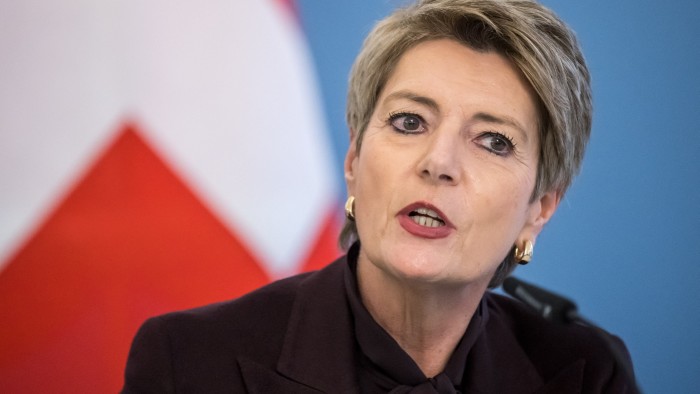Unlock the Editor’s Digest for free
Roula Khalaf, Editor of the FT, selects her favourite stories in this weekly newsletter.
This is a tale of two presidents — two presidents who are about as different from each other as you could imagine — and how their policies affect their banks. One is Donald Trump. When Trump won the US election on November 5 last year, global banks saw their share prices rise: the free-market champion would surely promote growth and demote regulation, creating a boom time for banking, particularly the big Wall Street groups.
Within a month of taking office, Trump has duly neutered key regulators. Like other presidents before him, he has done that in part by replacing their leadership in the usual party-political post-election changing of the guard. But with the exception of the Federal Reserve, he has also deployed his signature iconoclasm: he has taken direct control of rulemaking and, in the case of the Consumer Financial Protection Bureau, he has even putatively shut down a key regulator altogether.
The drive has had an influence beyond US shores, too, spurring deregulatory initiatives in the UK and EU amid fears that these markets risk being rendered uncompetitive. In part because of this, many European bank shares have enjoyed a boost on a par with their American rivals. Barclays and Deutsche Bank, like JPMorgan and Goldman Sachs, are up by 20-25 per cent since the US election.
There is a very different mood in Switzerland, home to another president with a crucial regulatory agenda and another giant global bank, UBS. How that agenda pans out over the coming months will have a big impact on the future of the bank.
Under the quirky Swiss system of government whereby senior ministers rotate the presidency on an annual basis, finance minister Karin Keller-Sutter is also the current Swiss president. Keller-Sutter and her colleagues at the Swiss National Bank and financial watchdog Finma are of a very different mind to the deregulating Trump, as they prepare to add a “Swiss finish” to global standards.
The push is understandable. It is less than two years since Switzerland lost one of its two global banks. Credit Suisse’s collapse, and its state-orchestrated rescue by UBS, was a huge stain on the country’s reputation for measured probity. It was also a personal trauma for Keller-Sutter, thrust into handling a high-profile systemic crisis barely two months into her finance minister role.
The result is that UBS now finds itself confronted by the prospect of tougher rules than global competitors. While the bank’s share price also bounced after Trump’s election, it suffered a precipitous drop at the start of February, when the group warned about the likely impact of the draft rules.
Some of the planned reforms are uncontentious. Finma, historically low-profile and deferential to peers in the US and UK, must become more muscular. There should be a senior managers’ regime, akin to the UK scheme introduced after the 2008 crisis, to hold senior bank executives more clearly accountable.
But it is on the issue of bank capital that horns are locked. The Swiss authorities want UBS, now far larger and far more of a too-big-to-fail risk to the country, to bolster its so-called core equity tier 1 ratio — a key measure of capital strength. The aim is to increase this ratio from its current level of about 14 per cent of risk-weighted assets (in line with many global peers) to an estimated 17-19 per cent at a cost of up to $25bn.
UBS has little room to fight back. It can let it be known that it could shift domicile (extremely complex), that it could merge with a European rival (most are less profitable or incompatible), or would be vulnerable to acquisition by a Wall Street giant (implausible given global regulators’ nervousness about large bank deals and the likelihood that the Swiss authorities would not in any case countenance losing the country’s remaining top-flight bank).
A strategy of alternative concessions might prove more persuasive. It might for example agree to a government ordinance limiting risk, by capping the scale of its investment bank at 25 per cent of risk-weighted assets. Equally, the authorities could recognise more of their own shortcomings — bankers point out that Switzerland is the only major economy not to have a public liquidity backstop for times of stress.
Expect months of wrangling ahead of a final set of reform proposals in May. Ultimately, despite the trauma Switzerland experienced through the collapse of Credit Suisse, compromise and consensus are in the country’s DNA. That, if nothing else, may give UBS and its investors cause for hope that the country will not diverge too far from the rest of the world.
https://www.ft.com/content/1c317c9e-3da8-4b63-8543-3db4b49425d2


